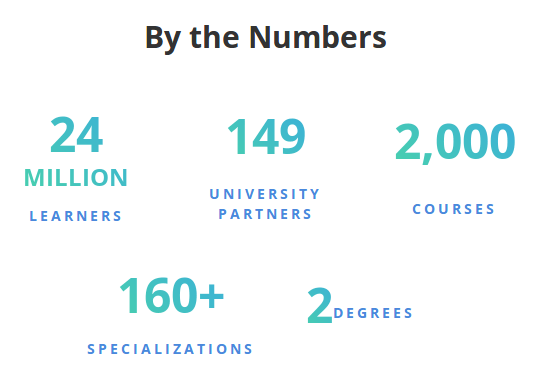Learn Courses Online From Reputable Institutions For Free!
The Internet is a great resource that has changed the way we learn almost abruptly. Before the turn of the 21st century, learning was always carried out with a book - a great limitation as upgrades in a field would have to be gathered over a long time and only made available in the edited versions which would again be printed and published and sold all over again. This tedious procedure has myriad of limitations, firstly, publishers would have to wait or a while before publishing a newer version to be able to accommodate a large amount of changes.
With the internet, updates on information are captured and documents are updated almost immediately which increases access to the latest information as information are no longer printed on books but easily typed out. Also there is this transition, a powerful transformation where every professional have an access to tools and people to share information with, a process that was restricted to huge architectural buildings and defined institutions.
The people that will take over the world in the information age are those who are usurp the benefits of the internet in accessing the right and needed information.
Breaking down the top 3 MOOC platforms: Coursera, Udacity & edX

Education professionals always talk about the “MOOC Revolution”, referring to the explosive emergence of Massive Open Online Courses back in 2012. Since then, dozens of e-learning organizations have entered the MOOC arena, wanting to get a piece of the growing market of online students. If you’re one of these students, the world of MOOCs can be slightly overwhelming — there are hundreds of MOOC providers and thousands of courses, all with varying offerings and requirements. If you haven’t done your research, you might not know which platform will work best for you. That’s all about to change. In this article, you will learn about the top 3 MOOC providers and the characteristics of their platforms and course offerings.
Coursera

Coursera was founded in 2012 by two Stanford Computer Science professors, and now features partnerships with top universities and educational institutions worldwide. Every course is taught by highly-qualified instructors in a format that may include recorded video lectures, graded assignments, quizzes, discussion forums, and peer-to-peer/ peer-to-instructor learning.
Courses normally last 4–6 weeks, are online and open to anyone, and range from free to $99 (usually paid for the verified certificate). Coursera has a series of more in-depth courses called Specializations, which can cost between $39–79 per month and take 4–6 months to complete.
They also offers several of university-recognized online degrees in business, computer science, and data science. Admission is required for these online degree programs, and they can cost between $15–25,000. Coursera has recently launched 2 Master’s degrees in Accounting and Entrepreneurship.
Udacity

In a seeming trend, Udacity was born from Stanford University, as well, when two professors decided to launch an “Introduction to Artificial Intelligence”course online, for free. The story goes that this course attracted more than 160,000 enrollments across 190 countries.
Udacity is more of a skills-based platform for professionals, offering Nanodegree programs and credentials that are industry-specific. Their top specialities are Web Development and Data Science. The courses (which offer free access to all course materials) are developed with input from education and industry experts. Format includes short videos, exercises, projects, and mentoring.
Their Nanodegrees, consisting of 5–7 courses, cost $199/month and can last from 6–12 months. Enrollment in a one of these gets you more perks: code-review, feedback, a personal coach, and verified certificate. They offer tuition reimbursement and a job guarantee as part of certain Nanodegrees. And now, Udacity even offers an accredited, online Master’s Degree in Computer Science in partnership with Georgia Tech.
(Submit your e-mail id in the comments section below to get a mail on insider free offerings from Udacity on courses that normally goes for over $599)
edX

Similar to both Coursera and Udacity, edX was launched by a prestigious university, two in fact: MIT and Harvard. edX is a non-profit that features rigorous coursework in a variety of subjects. They also have what is called Open edX, which is an open source platform that powers edX courses and is freely available. Through Open edX, “educators and technologists can build learning tools and contribute new features to the platform, creating innovative solutions to benefit students everywhere.”
As of April 2017, the edX platform offered 1,386 courses (free to audit but may pay up to $150 for the final certificate) and 76 programs. Their programs include university-credit programs and MicroMasters. They also have what is called Xseries, which is group of Specialization Courses. Format includes videos, video transcripts, discussion forums, peer-to-peer learning, and in-person meetups.
It should be noted that Coursera, Udacity, and edX are the 3 most popular platforms, having the most course offerings and students enrolled. For the first time in 2016, edX was ranked above Coursera and Udacity in a MoocLab survey.
But these 3 reigning MOOC leaders are not the only ones out there. In fact, there are hundreds of providers from around that world, including Future Learn, Udemy, Khan Academy, Open Learn, NovoEd, and many many more.



Good information for educators and technologists, that useful for online learning to improve skills. Massive Open Online Courses
ReplyDelete